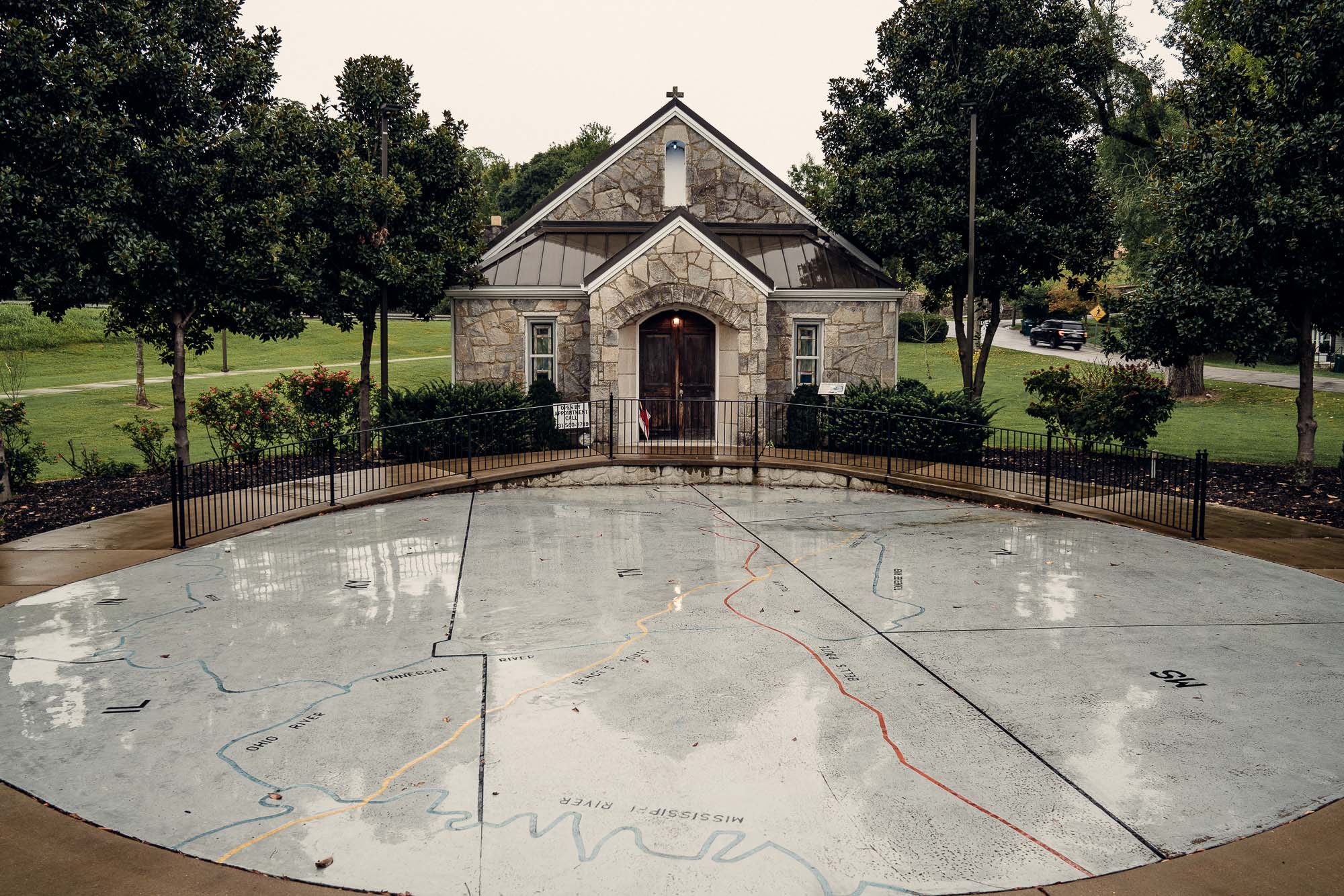
Giles County Trail Of Tears Memorial Interpretive Center
Created to tell the story of the Trail of Tears forced Indian Removal of Bell's and Benge Routes that crossed two weeks apart in Pulaski, TN.

In 1830, the U.S. Congress passed the Indian Removal Act. Tennessee Congressman David Crockett bitterly opposed the bill with many others, yet it passed by only one vote. The Indian removal of 1838-1839 displaced over 100,000 Native American Indians from their ancestral homes in the Southeastern US to a reservation over 1,000 miles away in the territory now known as Oklahoma. This removal was conducted by forcing the Indians to travel by four primary routes. Approximately 4,000 died along the way, and the Cherokees called it, "nunna dual isuny", which translates as "the trail where we cried". Today, it is referred to as the Trail of Tears. Two of the land routes, Bell’s and Benge’s, passed through Giles County and crossed in Pulaski, TN. The convergence of these two historic trails in Pulaski, and David Crockett’s strong opposition to the Indian removal has inspired the construction of a fitting memorial to the Trail of Tears and to David Crockett.
Museum is open to the public on Tuesday’s & Thursday's 10am-3pm and also by appointment.
$2 per person donation
Gallery















